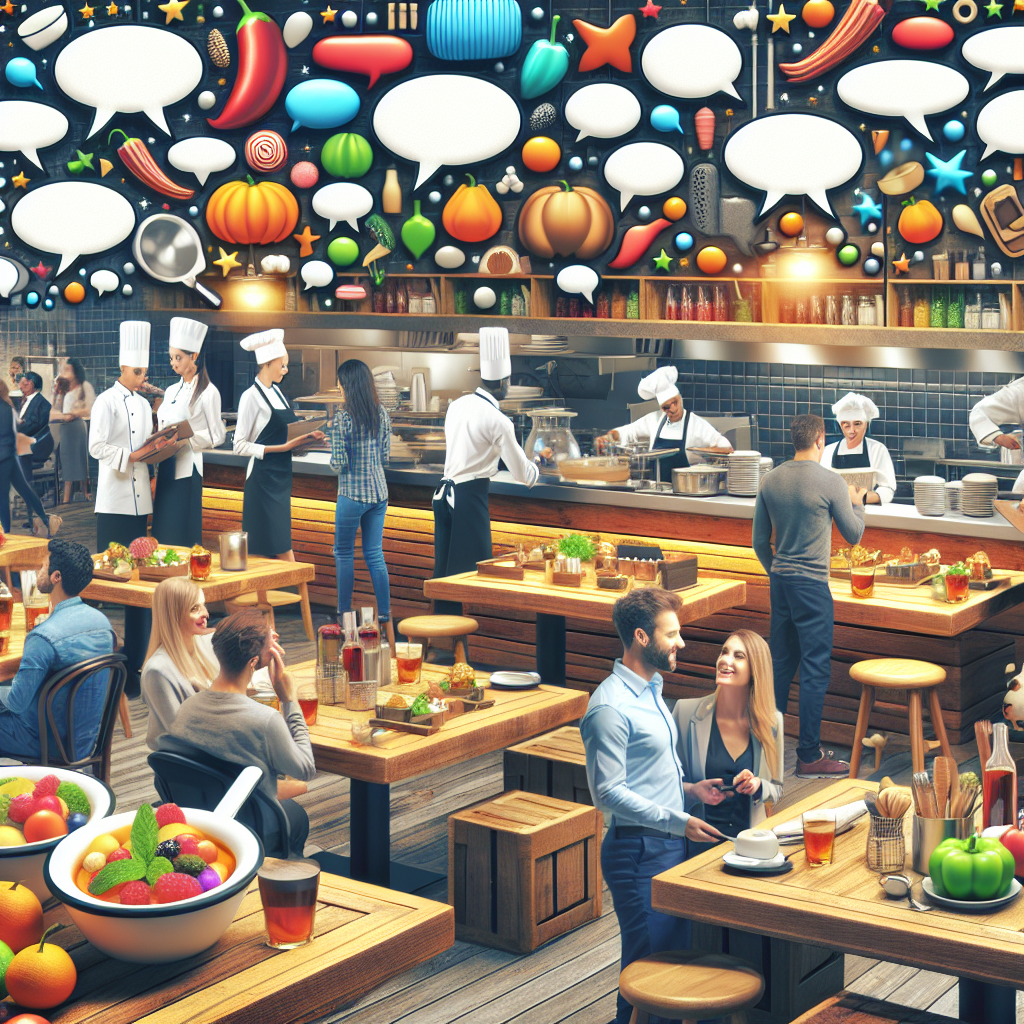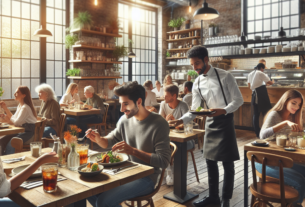The State of the Foodservice Industry in 2025: Trends, Challenges, and Innovations
In 2025, the foodservice industry continues to evolve and adapt to changing consumer preferences, technological advancements, and global trends. Fine dining establishments, in particular, have been navigating a competitive landscape while striving to maintain their reputation for culinary excellence and exceptional service. To better understand the different types of foodservice businesses within the fine dining category, it is essential to explore the nuances and characteristics of each segment.
The 5 Types of Foodservice Businesses in Fine Dining
1. Michelin-Starred Restaurants
Michelin-starred restaurants are renowned for their exceptional cuisine, impeccable service, and luxurious dining experiences. These establishments are often recognized by the prestigious Michelin Guide, which awards stars based on the quality of food, service, and overall experience. Michelin-starred restaurants are considered the pinnacle of fine dining and attract discerning diners who are willing to pay a premium for a memorable meal.
For example, The French Laundry in Napa Valley, California, is a three-Michelin-starred restaurant known for its exquisite tasting menus, extensive wine list, and meticulous attention to detail. Diners travel from around the world to experience Chef Thomas Keller’s culinary creations in a sophisticated and elegant setting.
2. Celebrity Chef Restaurants
Celebrity chef restaurants are owned or operated by well-known chefs who have gained fame through television shows, cookbooks, and culinary accolades. These establishments often showcase the signature style and creativity of the chef, creating a unique and personalized dining experience for guests. Celebrity chef restaurants are popular among food enthusiasts who are eager to taste the culinary creations of their favorite chefs.
For instance, Gordon Ramsay’s eponymous restaurant, Gordon Ramsay at The London, in New York City, offers a menu of modern European cuisine with a focus on seasonal ingredients and bold flavors. The restaurant’s glamorous ambiance and celebrity chef pedigree attract diners seeking a high-end dining experience.
3. Fine Dining Chains
Fine dining chains are upscale restaurant brands with multiple locations that offer a consistent level of quality and service across their establishments. These chains often have a strong brand identity and loyal customer base, making them popular choices for special occasions, business dinners, and celebrations. Fine dining chains combine the sophistication of fine dining with the convenience and accessibility of a larger restaurant group.
One example of a fine dining chain is The Capital Grille, a national steakhouse chain known for its dry-aged steaks, extensive wine selection, and elegant atmosphere. With locations in major cities across the United States, The Capital Grille has established a reputation for excellence and hospitality.
4. Luxury Hotel Restaurants
Luxury hotel restaurants are fine dining establishments located within upscale hotels and resorts, catering to both hotel guests and local residents. These restaurants often feature award-winning chefs, opulent dining rooms, and innovative culinary concepts that reflect the hotel’s brand and aesthetic. Luxury hotel restaurants offer a refined dining experience with a focus on quality ingredients, attentive service, and exceptional ambiance.
One notable example is Eleven Madison Park in New York City, a Michelin-starred restaurant located within the prestigious Eleven Madison Park hotel. The restaurant’s seasonal tasting menus, elegant Art Deco design, and panoramic views of Madison Square Park make it a destination for luxury travelers and discerning diners seeking a memorable dining experience.
5. Fine Dining Catering Services
Fine dining catering services provide upscale culinary experiences for private events, corporate functions, weddings, and other special occasions. These services offer customized menus, professional service staff, and elegant presentation to create a memorable dining experience for guests. Fine dining catering services bring the sophistication and gourmet cuisine of fine dining restaurants to off-site locations, allowing clients to enjoy high-quality food and service in a variety of settings.
For example, Daniel Boulud Catering in New York City offers bespoke catering services with a focus on French culinary traditions and seasonal ingredients. Chef Daniel Boulud’s team of skilled chefs and event planners work closely with clients to create custom menus and wine pairings for a range of events, from intimate dinners to large-scale galas.
Conclusion
In conclusion, the fine dining segment of the foodservice industry encompasses a diverse range of businesses, each offering a unique dining experience for discerning guests. Michelin-starred restaurants, celebrity chef establishments, fine dining chains, luxury hotel restaurants, and fine dining catering services all play a vital role in shaping the culinary landscape and setting the standard for excellence in dining. By understanding the nuances and characteristics of each type of foodservice business within the fine dining category, industry professionals can better navigate the challenges and opportunities of the evolving foodservice landscape in 2025.



